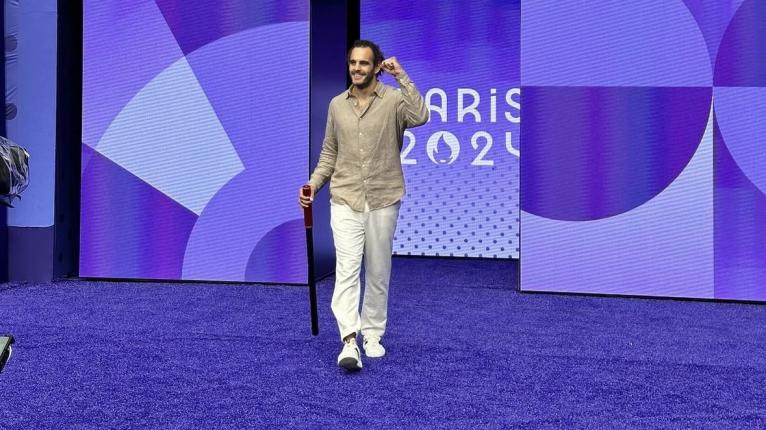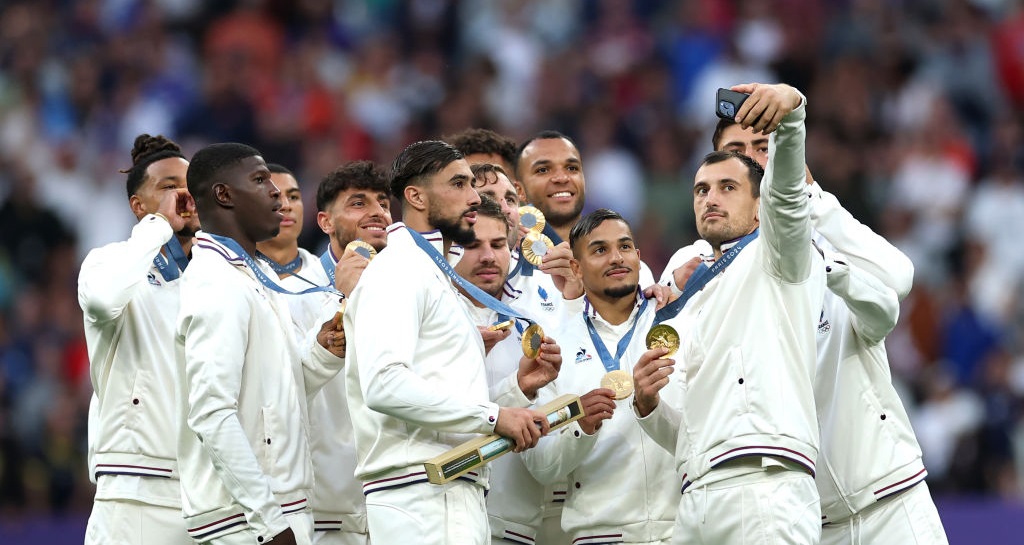Axed before Olympic gold: 'The feeling wasn’t easy to live with'

France Sevens veteran Jonathan Laugel ended his career shortly after his long-time team won the gold medal at Paris 2024, an Olympic tournament from which he was sidelined. In an exclusive interview with RugbyPass, he reflects on his last and powerful experience.
When the squad for the Olympic Games was announced on July 8, Jonathan Laugel (31) was notably absent. Given his extensive experience, it seemed likely he would be included, especially as it would have been the crowning achievement of his nearly 600 matches with the French rugby sevens team, including 443 at international level, and a career that began with the Wellington tournament in February 2012.
His last match was against USA in Singapore on May 5, where he faced a narrow defeat by two points (19-17). This close margin highlights the unforgiving nature of Sevens, and it’s one of the reasons why he wasn’t selected for the Olympics.
“The feeling wasn’t easy to live with,” he tells RugbyPass. “Even though it’s true that it wasn’t my best season, and I was aware of that, I also knew there were some very strong players in my position. Not being in the Olympic squad was a scenario I had anticipated.
“Jérôme (Daret, the coach) and Christophe (Reigt, the manager) called me, and Jérôme informed me that I hadn’t been selected for the Olympic squad.
“He then quickly asked if I would be willing to support the team in any way needed, particularly with match analysis during the competition, to offer an additional perspective. For me, it was an easy decision to make myself available.
“In all the scenarios I had considered, whether I was involved or not, the most important thing was for the team to win a medal and perform at their best. It helped me quickly focused on other things.”
Although Jonathan didn’t participate in the final weeks of Olympic preparation at the National Rugby Centre in Marcoussis, his expertise was frequently sought as a consultant, even during the competition. This allowed him to experience the Paris 2024 tournament in a way he hadn’t anticipated.

“I think there were three roles,” he reveals. “The role of the supporter, which involved cheering from my seat; that was a role I quite enjoyed.
“There was the role of the analyst, where Jérôme consulted me and other players for match analysis on teams and individuals – for instance with South Africa – we had to identify their key strengths in the tournament and where they could best utilize them.
“And then, a third role as a more involved spectator, by opening the rugby sevens final session. I had this triple role. It was quite powerful and filled me with a lot of emotion.”
During the final, he watched from the stands as Joseva Talacolo scored within two minutes, followed by Andy Timo breaking through the Fijian defence until Jefferson-Lee Joseph caught an offload to score and level. Antoine Dupont then came on for the second half, avoided a tackle, and passed to Aaron Grandidier to take the lead. Dupont later scored, securing the win with a final score of 28-7.
“I was with my mother and sister. It was a moment full of emotion, sometimes contradictory. I was there, supporting the team, wanting them to win because of the impact it would have on rugby sevens in France and globally. At the same time, I couldn’t help but think, ‘They’re going to do it, and I’m just watching from the stands,’” says Jonathan Laugel.
“That’s when you imagine scenarios in your head before they happen: if we make it to the final and I’m in the stands, how would I react? What I had prepared myself for was understanding my role in the final result and recognizing that I was part of the achievement and the story being written. That’s what I held onto, allowing me to express a lot of joy in seeing them dominate the final.
“Afterwards, many people in the stands came up to congratulate me on the medal and associate me with it. As for the team, I watched them celebrate and wondered if I should call them or if I should go out onto the pitch.
“I felt that this more spiritual association suited me. I didn’t feel the need to rush out onto the field to celebrate or to join them afterwards to claim the medal by proxy. I was satisfied with their victory; their happiness made me happy.
“And sharing this moment with my family, who had also been part of this emotional journey for several months, felt like the right choice.”
As it stands, Jonathan has yet to hold the gold medal in his hands. “Not yet. And do I really need to touch it?” he asks. “It’s not around my neck, but it’s somewhere inside me. It’s imperceptible, but no one can take that away from me. I wasn’t on the field, and I didn’t feel it around my neck. Spiritually, that’s what means the most to me. The main thing is done. Mentally, it nourishes me far more than if I had to physically touch it.”
It’s without bitterness or frustration that he reflects on not celebrating at Club France, not receiving a standing ovation at the Champ-de-Mars, and not dancing with his teammates. For him, the most important thing lies elsewhere.
“I’m also aware that victory belongs to those on the pitch, to those who experienced it as a team. It was important for them to enjoy it. I was just happy to see them celebrating, dancing this dance we’ve been doing for years. I was thrilled that they were honouring the work we’d done, without any bitterness. I felt like I was where I was supposed to be, even if it was in front of the TV,” he smiles.
Now, a new chapter is beginning. On August 24, he gets married; in September, he goes on his honeymoon; and in October, he starts at Capgemini, where he has been training for the past few years. A new phase of his life is now unfolding.










































































